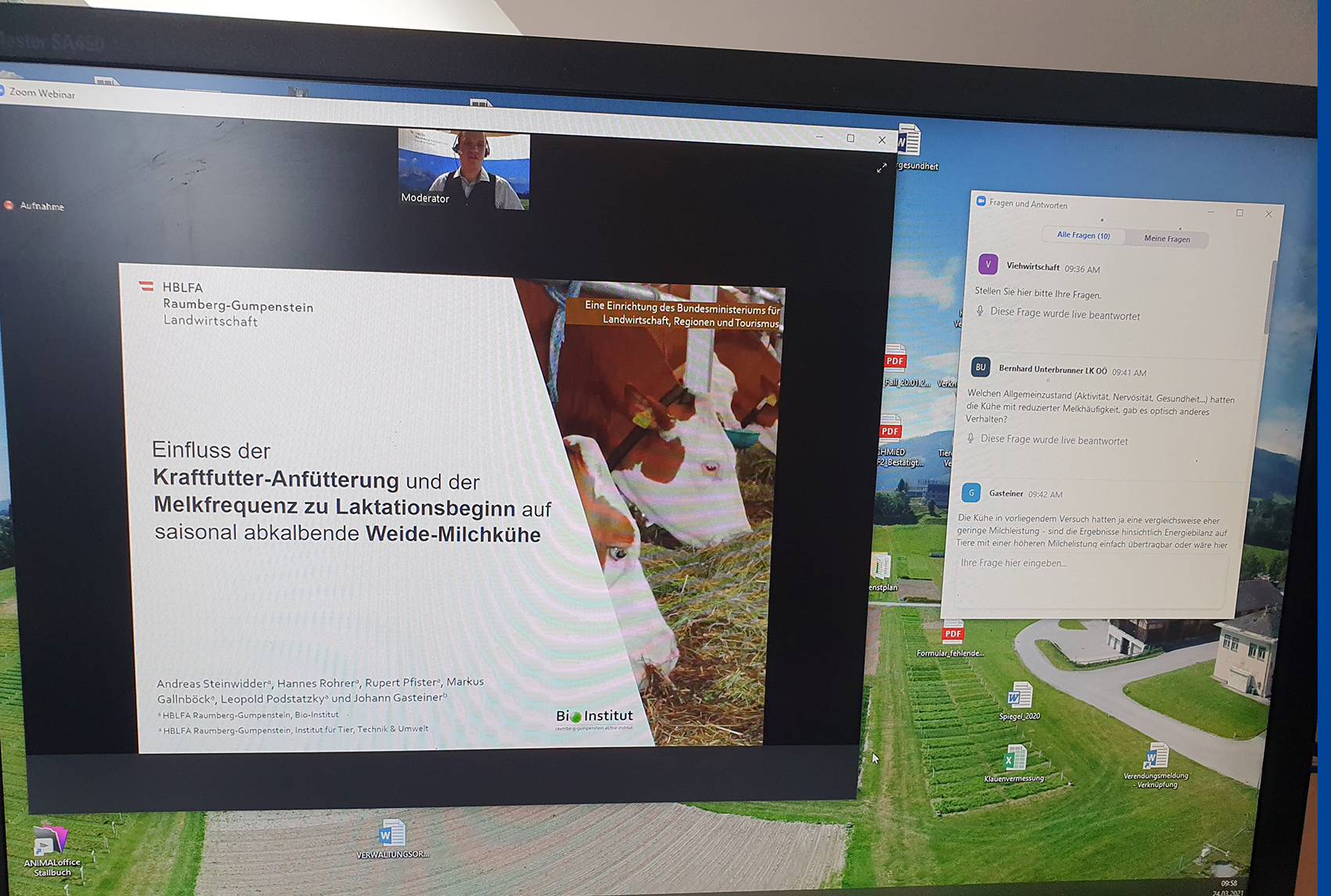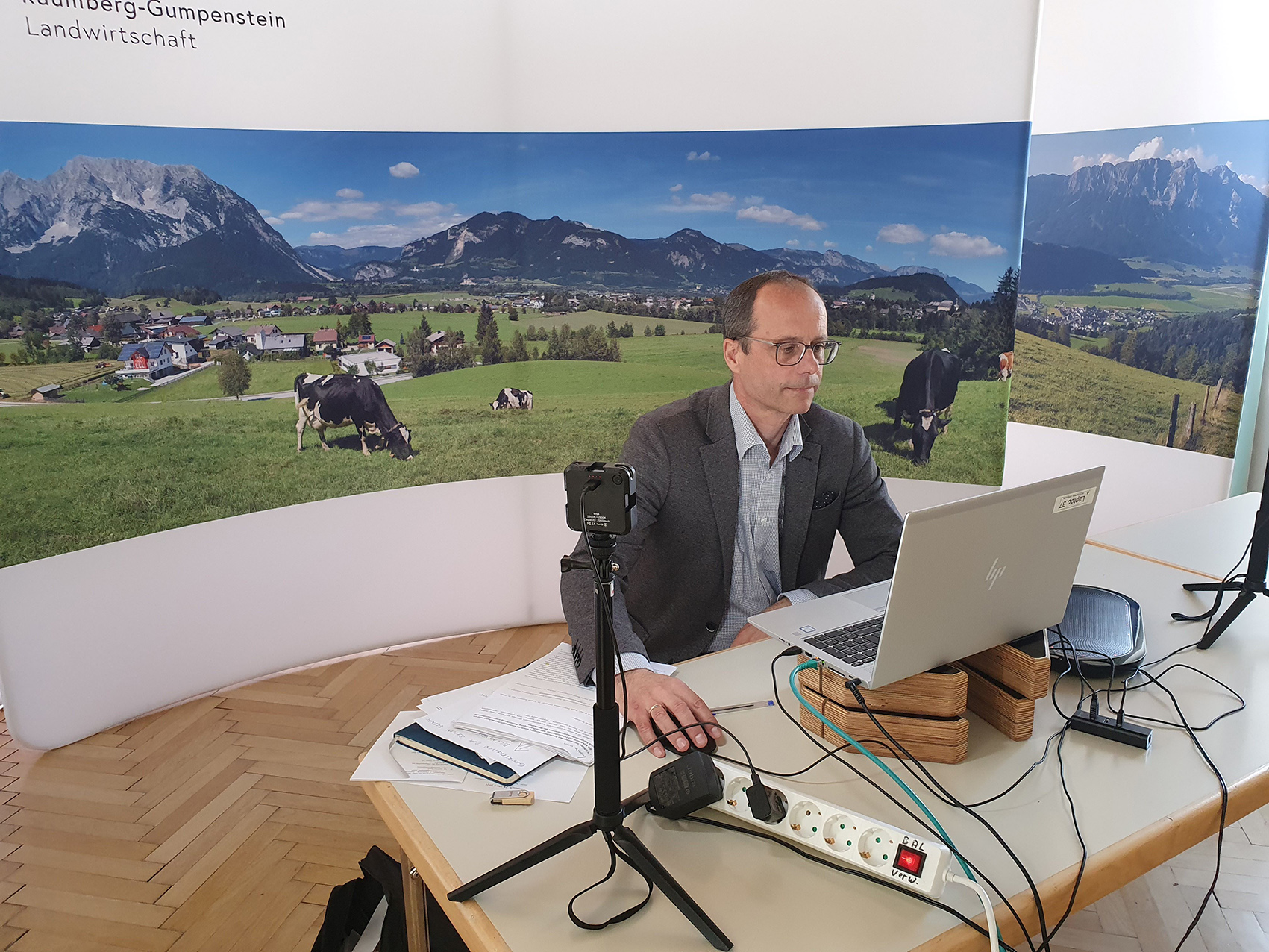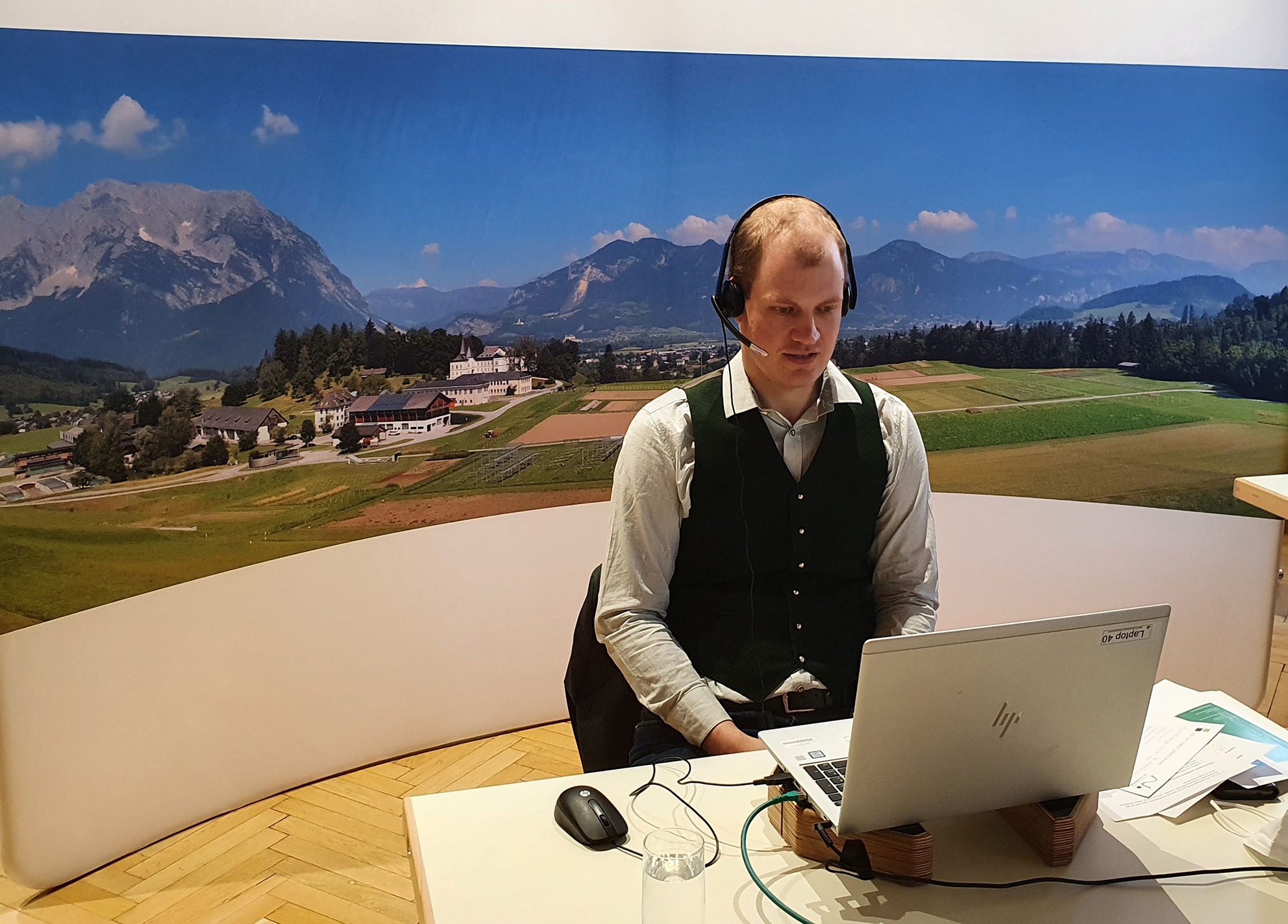Milk yield - animal health - economics
It started with PD Dr. Andreas Steinwidder from the HBLFA Raumberg-Gumpenstein, who presented the results of a trial in which different concentrate feeding strategies and milking frequencies around calving were examined. Afterwards, Ms. PD Dr. Anke Römer from the LFA Mecklenburg-Western Pomerania discussed the topic of “Voluntarily extended calving intervals for dairy cows” and their impact on milk production, animal health and the economy of the farm. At the end of this first block, Gerhard Kappel, dairy farmer from Oberschützen in Burgenland, reported on his practical experiences with voluntarily extended calving intervals.
Basic feed quality
The second block of the conference focused entirely on basic feed quality. Prof. Dr. Qendrim Zebeli from the University of Veterinary Medicine Vienna first spoke about the suitability of sugar-rich hay for feeding dairy cattle. Afterwards, Ing. Reinhard Resch from the HBLFA Raumberg-Gumpenstein presented the most important results and findings of the LK silage project 2020. One of the prize winners for this silage project is Michael Gruber, dairy farmer from St. Pölten in Lower Austria, who discussed his strategy for optimization during his presentation the quality of the silage.
Meat quality
On the afternoon of the first day, current research results from the Institute for Livestock Research at the HBLFA Raumberg-Gumpenstein were on the agenda. Dipl.-Ing. Stefanie Gappmaier first explained how feeding dairy cows can influence the composition of their stool. Afterwards, Dr. Georg Terler and Ramona Hotschnig, Bsc. the topic of methane emissions from dairy cows and how these can be influenced by the choice of genotype and the use of concentrate feed. Furthermore, Dr. Margit Velik explains how strong the connection is between the marbling of beef and various slaughter performance and meat quality parameters. At the end of the day, Dr. Thomas Guggenberger the necessity and opportunities of “location-appropriate agriculture”.
Animal welfare - food trade
The second day began with two lectures by Stefan Lindner, chairman of the ZAR and Dr. Barbara Fiala-Köck, Styrian Animal Welfare Ombudswoman, who each presented, from their perspective, strategies for increasing the animal welfare of dairy calves. Afterwards, Univ-Doz. Dr. Leonhard Gruber new findings on feed intake and energy expenditure of rearing cattle with a live weight of up to 220 kg. Dr. Christian Koch from the Hofgut Neumühle teaching and research institute in Rhineland-Palatinate then spoke about the importance of colostrum supply and avoiding stress in raising calves. Marlene Berger, BSc. from the Salzburg Chamber of Agriculture and Josef Fradler, chairman of ARGE Rind, presented various experiments and initiatives with the aim of developing or expanding marketing channels for Austrian veal. Dr. Margit Velik also presented a new research project from the HBLFA Raumberg-Gumpenstein on the fattening of dairy breed × meat breed crosses. At the end of the conference, Mag. Manfred Kröswang, food wholesaler from Upper Austria, explained where, in his opinion, the biggest challenges lie in the marketing of Austrian veal.
Feedback from conference participants and active participation in the discussion of the presentations demonstrate great interest in the conference. Despite the restrictions caused by the Corona pandemic, interested farmers, consultants, teachers and livestock industry experts were able to be offered a valuable training opportunity in the form of this webinar.


Downloads
Here you can find the downloads of previous livestock industry conferences:






